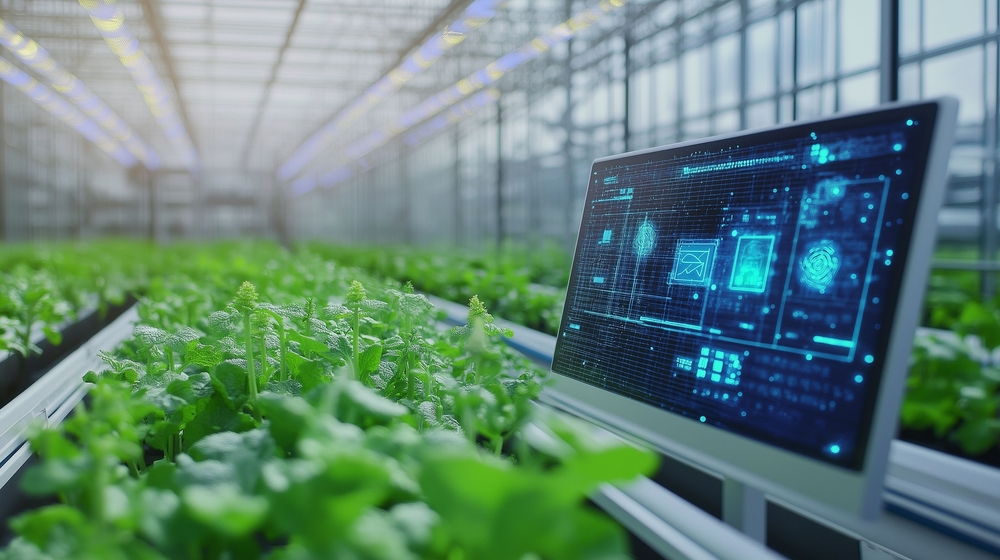In the serene outskirts of Stockholm, Sweden, Erik Lundgren walks through his vertical farming facility, a gleaming testament to agricultural innovation. The former investment banker turned agritech entrepreneur gestures at towers of leafy greens bathed in purple LED light. “Five years ago, this was just an empty warehouse,” he says. “Today, we’re producing the equivalent of 100 acres of conventional farmland in just 3,000 square meters, using 95% less water and zero pesticides.”
Lundgren’s operation exemplifies the transformative potential of controlled agriculture, a sector that’s rapidly emerging as a compelling opportunity for family offices seeking both financial returns and environmental impact. As traditional agriculture grapples with climate change, resource scarcity, and population growth, controlled agriculture offers a technology-driven solution that’s attracting significant investment attention.
Understanding the Controlled Agriculture Revolution
James Chen, Chief Investment Officer at Asia Pacific Family Office Alliance, provides context: “Controlled agriculture represents a fundamental shift in how we think about food production. It’s not just about growing plants indoors – it’s about precision, predictability, and scalability.” This approach encompasses various technologies and methodologies, from vertical farming and hydroponics to aeroponics and aquaponics, all united by the core principle of controlling environmental variables to optimize crop production.
The numbers tell a compelling story. According to recent market analyses, the global controlled agriculture market is projected to reach $31.1 billion by 2030, with a compound annual growth rate of 18.2%. This growth is driven by multiple factors: increasing food security concerns, rising demand for pesticide-free produce, and the need for climate-resilient agriculture solutions.
Investment Landscape and Market Dynamics

Anne Grossman, Managing Director at Verde Capital Partners, a family office specializing in sustainable investments, shares her perspective: “What makes controlled agriculture particularly attractive to family offices is its alignment with both financial and impact objectives. We’re seeing strong potential for returns while addressing crucial environmental and social challenges.”
The investment opportunities in controlled agriculture span multiple entry points. Direct ownership of facilities, like Lundgren’s operation in Stockholm, represents one approach. Other options include investing in technology providers, supporting infrastructure development, or participating in agricultural REITs focused on controlled environment facilities.
Technology and Innovation at the Core
The technological sophistication of modern controlled agriculture facilities would surprise many traditional farmers. Dr. Michael Wong, Chief Technology Officer at AgriTech Solutions, explains: “We’re essentially creating digital twins of optimal growing conditions. Every aspect – from temperature and humidity to light spectrum and nutrient delivery – is monitored and adjusted in real-time using AI and IoT sensors.”
This technological integration extends beyond basic environmental control. Advanced facilities now employ machine learning algorithms to predict crop yields, optimize resource usage, and even adjust growing conditions based on market demand forecasts. The result is a level of precision and efficiency previously unimaginable in agriculture.
Case Study: The Netherlands’ High-Tech Greenhouse Success
The Netherlands offers a compelling example of controlled agriculture’s potential. Despite its small size, the country has become the world’s second-largest food exporter by value, largely thanks to its advanced greenhouse technology. Peter van der Meer, a third-generation greenhouse operator turned consultant, describes the transformation: “What started as simple glass houses has evolved into sophisticated climate-controlled environments. We’re now growing tomatoes with minimal water usage, using geothermal energy for heating, and achieving yields that are ten times higher than traditional farming.”
Implementation Strategies and Practical Considerations
For family offices considering entry into controlled agriculture, careful planning is essential. Robert Thompson, an agricultural investment advisor with twenty years of experience, outlines key considerations: “Success in this sector requires a thorough understanding of both the technology and the market dynamics. Location selection, infrastructure requirements, and operational expertise are crucial factors.”
Thompson emphasizes the importance of building the right team. “You need a blend of agricultural knowledge and technical expertise. Many successful operations pair experienced growers with data scientists and automation specialists.”
Risk Management and Market Considerations

While the potential rewards are significant, controlled agriculture isn’t without risks. Energy costs, technical complexity, and market competition all present challenges. Victoria Chang, Risk Manager at Pacific Rim Investments, advises: “We recommend a phased approach to investment, starting with smaller facilities and scaling up based on demonstrated success. It’s also crucial to have robust contingency plans for technical failures and market fluctuations.”
Sustainability and Social Impact
Beyond financial returns, controlled agriculture offers significant environmental and social benefits. David O’Connor, Sustainability Director at European Family Office Coalition, notes: “We’re seeing increasing interest from next-generation family members who want to combine profitable investments with positive environmental impact. Controlled agriculture hits both marks by reducing water usage, eliminating pesticides, and decreasing transportation emissions through local production.”
Future Outlook and Emerging Trends
The future of controlled agriculture appears bright, with several emerging trends shaping the sector. Integration with renewable energy, expansion into new crop varieties, and increasing automation are all driving innovation. Dr. Rachel Stevens, an agricultural economist at Global Food Systems Institute, predicts: “We’re likely to see continued technological advancement leading to lower operating costs and higher yields. The sector is also likely to benefit from increased institutional investment and government support as food security becomes a greater priority.”
Conclusion
As traditional agriculture faces mounting challenges, controlled agriculture emerges as a promising solution that combines technological innovation with sustainable food production. For family offices, it represents an opportunity to participate in transforming our food system while potentially generating attractive returns. As Erik Lundgren reflects while looking at his thriving vertical farm: “We’re not just growing food differently – we’re helping to create a more sustainable and secure food future.”
The key to success in this sector lies in careful planning, thorough due diligence, and a long-term perspective. With proper execution, controlled agriculture investments can deliver both financial returns and meaningful impact, making them an increasingly attractive option for forward-thinking family offices.
The future of controlled agriculture appears increasingly bright, with technological advances and market demand driving continued innovation. Family offices that approach this opportunity with thorough due diligence, clear strategic vision, and commitment to operational excellence will find themselves well-positioned to capitalize on this growing sector while contributing to sustainable food production solutions for future generations.
For family offices considering entry into this space, the key lies in developing a comprehensive understanding of both the opportunities and challenges, building strong partnerships with technology and operational experts, and maintaining a long-term perspective focused on sustainable growth and impact. As the sector continues to mature, those who establish strong foundations today will be best positioned to capitalize on future opportunities in this dynamic and evolving market.






